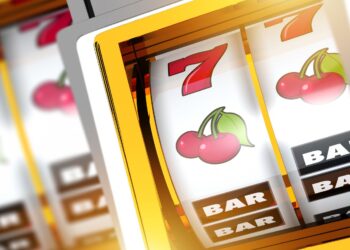Video games often star noble heroes. These are brave, selfless figures fighting for justice or survival. Their stories ask players to make tough moral choices. But there’s often a contradiction. The gameplay can go against the ethics of the story. This is known as moral dissonance. It happens when the player’s actions don’t match what the story says is right.
This is different from ludo narrative dissonance. That’s about story and gameplay not aligning. Moral dissonance is about ethics. It asks hard questions. Can a character still be “good” if they’re rewarded for bad actions? What does it mean to save the world by killing dozens of people? If you like playing on a 22Bit platform and its similar, or have kids fond of video games, you should read this article until the end.
When Heroes Kill for XP
This dissonance is most obvious when “good” characters kill a lot. Take Uncharted, for example. Nathan Drake is charming and heroic. But he kills hundreds in each game. The story says he’s a good guy. The gameplay says otherwise.
This isn’t just poor writing. It’s a design choice. Combat is fun, and players expect it. But it creates a conflict. Drake is kind in cutscenes, but ruthless in gameplay. Tomb Raider’s Lara Croft and The Last of Us’s Joel show the same pattern.
The games say it’s all for survival. But the high body count and lack of regret feel off. The violence doesn’t match the character’s moral image.
The Illusion of Choice
RPGs often sell the idea of moral choice. But even these can fall into dissonance. Take Mass Effect. Shepard can be a Paragon or a Renegade. Both are rewarded. But some Renegade actions—like threats or war crimes—are brushed aside or praised.
The game frames them as “necessary.” But consequences are rare. This makes the moral weight feel shallow. The game encourages harsh choices but doesn’t always make them matter.
Red Dead Redemption 2 has a similar problem. Arthur Morgan can be kind or cruel. But many missions still need violence. No matter how noble he acts, the story forces bloodshed. His personal growth clashes with game mechanics.
Open Worlds, Open Ethics?
Open-world games offer freedom. But they often reward bad behavior. The Witcher 3 has complex storytelling. Geralt is thoughtful and tries to avoid violence. Still, players can kill innocents and rob houses.
Even in Breath of the Wild, Link can steal and destroy. There’s little punishment. The game focuses on fun, not ethics. The result? A world with one story and different systems.
The dissonance isn’t always about hypocrisy. Sometimes, it’s just a lack of consequences. The systems don’t reflect the story’s morals.
The Economics of Dissonance
Why is this so common? Partly, it’s about money and design. Combat and leveling are easy to build. They give goals, feedback, and rewards. Moral complexity is harder and more costly to design.
Players also want freedom. Many enjoy power and control. This often means violence. So developers face a tough choice. Should they limit freedom for story? Or keep fun mechanics and accept dissonance?
When Games Get It Right
Some games tackle moral dissonance head-on. Undertale lets players avoid killing. Mercy leads to a better ending. If you kill, the game reacts. NPCs remember. The story changes. Dissonance becomes part of the lesson.
Spec Ops: The Line does something similar. Captain Walker thinks he’s helping. But he commits horrible acts. The game forces players to reflect. It breaks the fourth wall. It asks what you did. Dissonance is the theme—not a mistake.
Players as Co-Authors of Morality
Games are unique. Players shape the story. That adds new layers to ethics. In Fable or Disco Elysium, choosing kindness builds your version of the hero. But when the game pushes you toward bad acts for rewards, your choices lose meaning.
So moral dissonance isn’t just a writing issue. It’s a design one. Will games challenge players? Or stick with what’s familiar?
Bridging the Gap
Moral dissonance with “good” protagonists shows a deeper tension. It’s a clash between big storytelling goals and old gameplay habits. It forces players to reflect—not just on the character—but on themselves.
As games evolve, devs can fix or embrace this issue. They can design worlds where choices carry moral weight. Where being “good” means more than just picking a nice dialogue option.
The goal isn’t perfect heroes. It’s meaningful ones.














